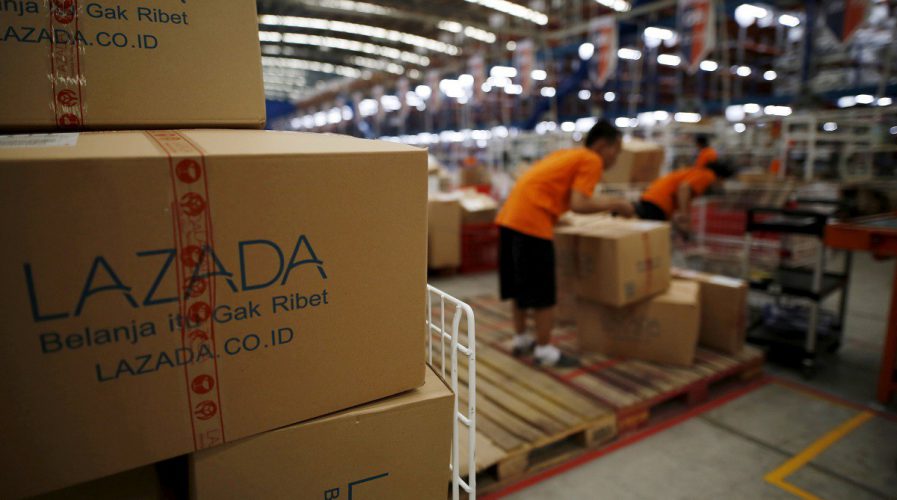
Lazada is jumping on the Buy Now Pay Later bandwagon ‘very soon’.Source: Reuters
Lazada is jumping on the Buy Now Pay Later bandwagon ‘very soon’
- Lazada Malaysia CEO Alan Chan said the Alibaba-backed e-commerce platform does have plans to include Buy Now Pay Later for its Malaysian operations and “it will be launched very soon”.
- Lazada is focusing on bringing the best partners when it comes to BNPL financial services on their platform.
As with every technological advancement over the last century, the method in how we pay too has changed tremendously with time. At the juncture we are at today, the traditional credit system, which was once undestructable, has shifted to many other alternative payment solutions, with Buy Now Pay Later (BNPL) being the latest trend. Lazada Group, one of Southeast Asia’s leading e-commerce players is finally joining its rivals by incorporating BNPL on its Malaysian platform.
Lazada Malaysia CEO Alan Chan in a response to Tech Wire Asia’s (TWA) question during a media briefing in Singapore, shared that the e-commerce platform has the plans to partner with BNPL players, and those payment options “will be launched very soon”. For context, a large number of e-commerce businesses, including its main regional rival Shopee, have incorporated BNPL payment options and witness better conversion rates.
When asked why Lazada has not jumped on the bandwagon of this new payment option, Chan responded by saying “Our philosophy actually is quite simple; we want to bring the best breed of partners to provide financial services into our platform,” he said, adding that Lazada is looking to launch BNPL for its Malaysian platform in the “very near future”.
To recap, the Covid-19, if anything, has accelerated the adoption of e-commerce in emerging economies, especially in Southeast Asia. The pandemic has also seen strong partnerships between e-commerce and BNPL platforms, and besides Lazada, almost all e-commerce platforms in Southeast Asia currently offer a BNPL option alongside more traditional online payment options, such as Visa and Mastercard.
To top it off, it is easier for consumers to get easy access to BNPL options, without the involvement of credit checks. AT this point, Lazada only offers installment payments for Maybank credit card holders, but Chan noted that will not be the only option for long. “The benefit of BNPL is that it allows consumers to access things that they want to purchase on our platform at greater prices and flexibility. At the same time, Lazada is known for its safety and reliability.”
Adding to that, Chan also reiterated that when Lazada do launch their BNPL offering in Malaysia, it will bring the best of both worlds into one. “At the same time, we are also partnering with a lot of fintech companies in Malaysia to allow us to offer more options for our goods and services.”
BNPL allows consumers to defer payments or pay in interest-free installments, even for small-ticket purchases, including cosmetics, clothing and footwear. As Fitch Solutions puts it, consumers, most notably generation Z and millennials, are becoming increasingly willing to use online BNPL options to purchase goods.
“We expect more retailers and e-commerce platforms to partner with BNPL firms over the next few years. As Internet and e-commerce penetration rates rise in emerging markets and consumers develop a higher trust level in online payment methods, we believe BNPL has the potential to weigh on credit card usage for e-commerce transactions,” Fitch said in a report.
Among the myriad of BNPL players in the region, Singapore-based Atome is leading in the region and is available in over 10 Asian markets, including Thailand, Indonesia and Vietnam. The company has over 10,000 partnerships with online and offline retailers across sectors such as fashion, beauty, lifestyle and homeware.
READ MORE
- 3 Steps to Successfully Automate Copilot for Microsoft 365 Implementation
- Trustworthy AI – the Promise of Enterprise-Friendly Generative Machine Learning with Dell and NVIDIA
- Strategies for Democratizing GenAI
- The criticality of endpoint management in cybersecurity and operations
- Ethical AI: The renewed importance of safeguarding data and customer privacy in Generative AI applications


